8. Upgrade (Dir. Leigh Whannell, 2018)
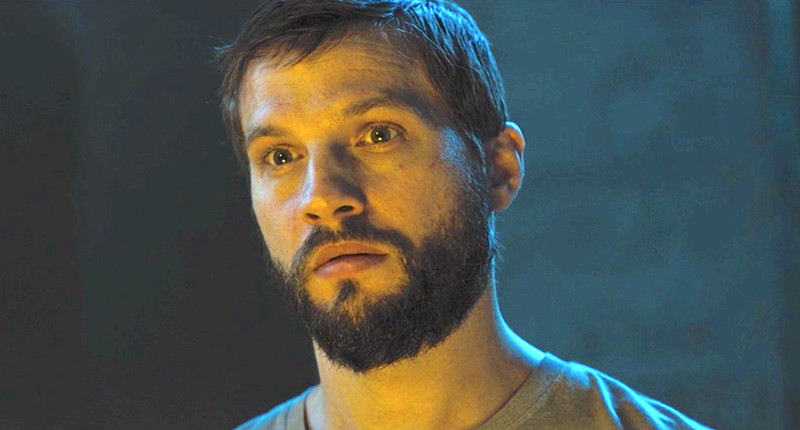
Set in a futuristic, but not so distant, slightly dystopian future, Upgrade was a very pleasant surprise to (hard-core) Sci-Fi fans. Serving a great mix of bio & cyber, this film acts like the punk lovechild of Venom and Robocop.
Mechanic Grey Trace (Logan Marshall-Green) is left quadriplegic following an assault that also led to the death of his wife. A new technology developed by a young tech innovator and guru, who is also one of his clients, allows Grey to walk again, giving him a chance to track down the members of the gang that ruined his life.
The implant called STEM enables our mechanic to regain all his motor functions, but also comes with a voice inside his head. Grey soon realizes that when granted permission, STEM can take full control over his body, turning him into a killing machine, which proves very useful for someone seeking revenge.
With a clever plot that delivers several good twists, and surprisingly good special effects for a rather low-budget film, Upgrade adds another great example of how to create a lot with very little. While being dark, grimy and occasionally gruesome, it is also entertaining and filled with dark humour.
7. The Fly (Dir. David Cronenberg, 1986)
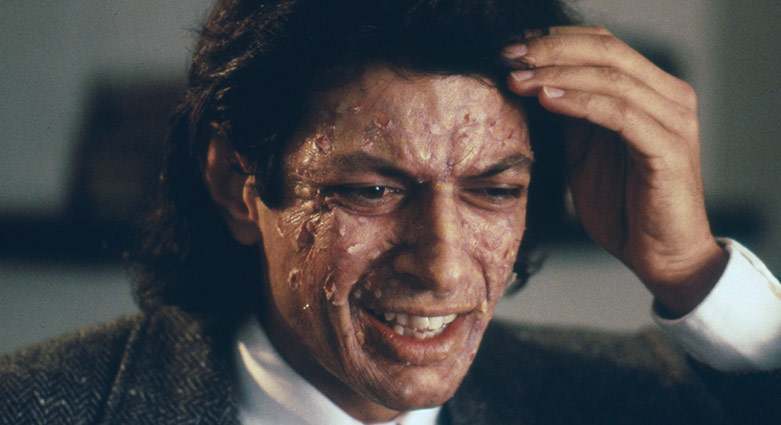
Young and eccentric scientist Seth Brundle (Jeff Goldblum) decides to show off his revolutionary invention to science journalist Veronica (Geena Davis); following a press event, he invites her to his home lab and reveals a game-changing teleportation system.
After several trials, he decides to test it on himself. He successfully emerges out of the receiving telepod, seemingly normal, but unaware of the fly that had entered the transmitting pod. He soon understands that, in the process, his DNA got fused with the DNA of the fly.
The transformation that follows is the stuff of nightmares and also legend, using practical effects that make the decay gross and the metamorphosis believable. Beyond the sci-fi elements, the body horror, the grotesque and Kafkaesque tones, The Fly is a character drama that brings a depth that is not very common or specific to this genre. Moreover, the soundtrack composed by Howard Shore adds an utterly tragic and heart-breaking vibe to the story.
The film was critically acclaimed and commercially successful, quickly turning into a cult classic. With this, his third entry in the list, along with his son’s Antiviral, Cronenberg’s cultural influence to the genre (and beyond) simply cannot be overstated.
6. RoboCop (Dir. Paul Verhoeven, 1987)
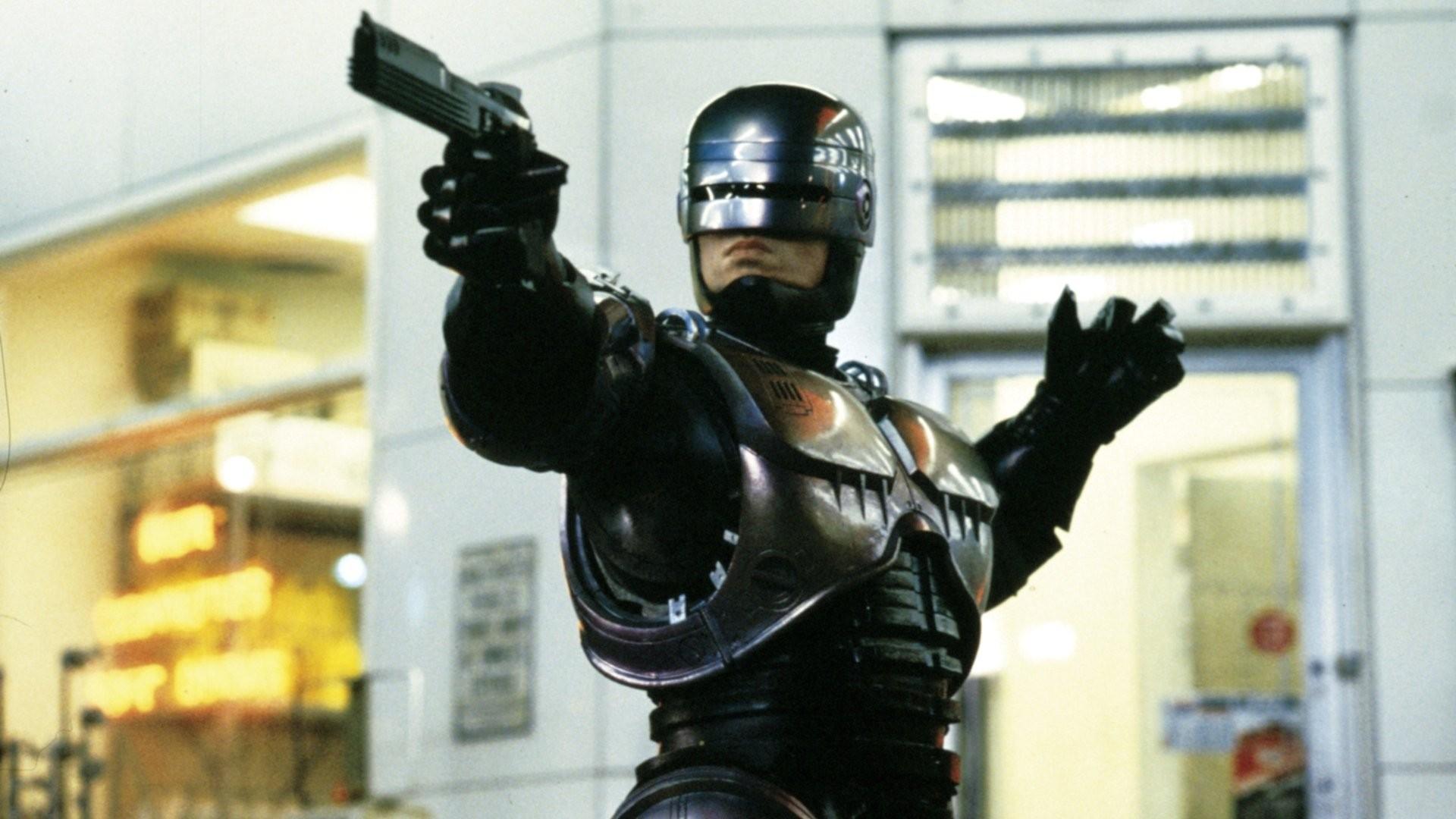
In a futuristic, dystopian Detroit overrun by crime, the mayor signs a deal with megacorporation OCP to fund and run the police department, in exchange for letting OCP build and manage their utopian Delta City.
While pursuing a criminal gang, young officer Alex Murphy (Peter Weller) is gunned down and killed in a brutal and merciless way. Under OCP, Murphy is resurrected as RoboCop, a cyborg programmed to “serve the public trust, protect the innocent, and uphold the law”. Underneath the thick layer of violent political satire, Robocop is basically an allegory of Jesus Christ.
On a relatively low budget, using practical effects, stop motion and paintings, the incredible design of RoboCop still looks amazing more than 3 decades later. Moreover, the level of detail, the memorable theme, great action scenes and an excellent script that finds just the right balance between dark humour and extreme violence have turned it into a sci-fi classic.
And yet, the heart of the story is in the humanity left in Murphy, revived once his dreams and memories start coming back to him. How much of yourself can you remove before you stop being… you?
5. District 9 (Dir. Neill Blomkamp, 2009)
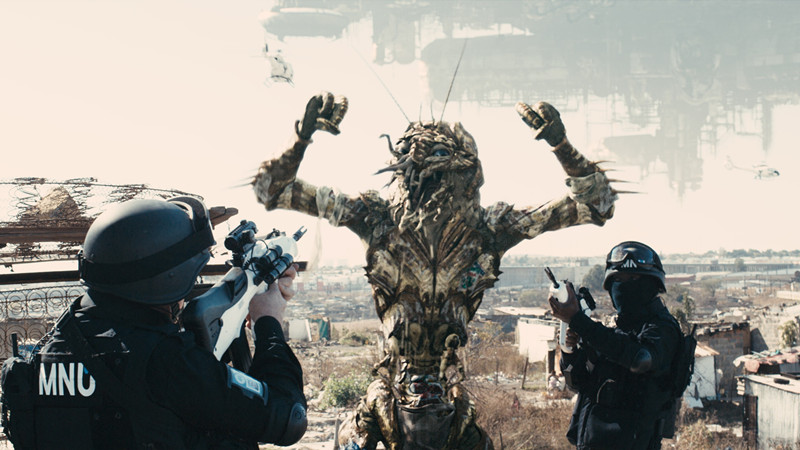
Being heavily influenced by some other titles in this list, visionary Blomkamp blends social and political commentary with a sci-fi premise to create a multi-layered dystopia, explored partially via hand-held camera work which creates a very realistic, documentary-like experience.
Aliens arrive on Earth, this time not as invaders, but as refugees. Seeking asylum, the aliens are forced by circumstances (and the gov’t) to live in a camp (District 9), in Johannesburg.
Years later, clueless bureaucrat Wikus van de Merwe (Sharlto Copley), is assigned to coordinate the relocation of the “prawns” to a new camp outside the city. In the process, Wikus gets exposed to an alien substance and things take a Cronenbergian turn.
Since the advanced alien weaponry is only responsive to the alien DNA, Wikus becomes both fugitive and a valuable asset, wanted for military research.
Featuring mech-suits, cool weaponry and plenty of bio-punk elements, alien flesh meets technology in this original piece of modern sci-fi.
4. Ghost in the Shell (Dir. Mamoru Oshii, 1995)
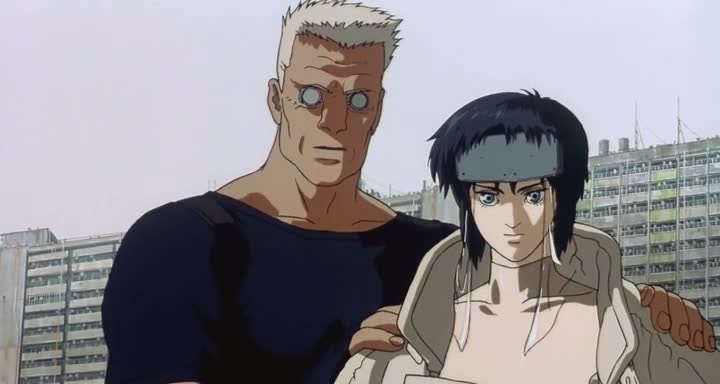
The year is 2029 and advancements in cybernetics have led to a fusion between humanity and technology. But what is it that separates the two? And what happens when they merge?
Assault team leader Motoko Kusanagi is a cyborg with a form of humanity inside, a rather deep level of self-awareness, a consciousness that is referred to as a ‘’ghost’’ that can inhabit a body (shell).
Motoko and her partner, Batou, must track down and stop the mysterious Puppet Master, a sentient life form emerged from the vast sea of information, an unseen world that goes far deeper and beyond today’s Internet.
It is difficult to measure the cultural impact of this 80-minute anime, but let us say that without it, Matrix would’ve never been the same, if at all. What makes a human being… human? Is it consciousness, our mortality or the ability to reproduce? What is the next step in evolution? While some questions are explicit, entwined with other more subtle ones, the film does not provide answers.
With amazing visual style, great action scenes, deep philosophical themes, and a haunting score by Kenji Kawaii, this anime has it all.
3. Akira (Dir. Katsuhiro Ôtomo, 1988)
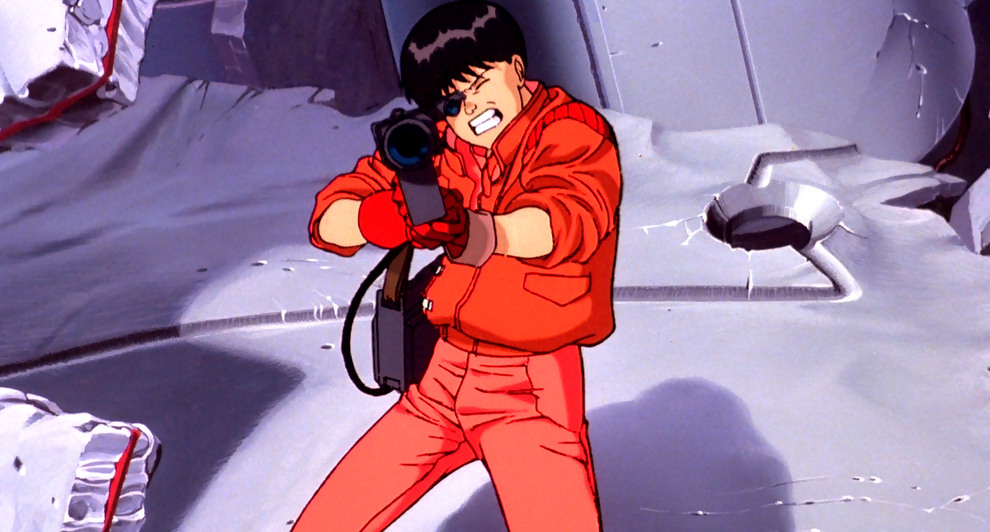
Akira is probably the most important moment in the history of modern anime, representing the milestone that turned anime into a global phenomenon. The manga series, written and illustrated by Ôtomo, was also one of the first manga to be completely translated into English.
Rebuilt after being destroyed by a singularity, Neo-Tokyo is on the verge of collapse, plagued by violence and corruption. As if that wasn’t enough, a secret military project endangers the city after accidentally turning a biker gang member (Tetsuo) into a rampaging psychic psychopath. The only ones who can stop him are a few of his fellow gang members and a group of psychics, called espers.
Once again, Tetsuo’s metamorphosis plays as a metaphor for post-war Japan, turning into a hybrid of flesh and metal, organic matter fusing with industrial elements.
Thus, this intense anime explores, once more, some of the anxieties of Japanese society, with echoes of WW2 and the nuclear bombings of Hiroshima and Nagasaki, as well as the search for a new Japanese identity.
With plans for a live-action remake, one can only hope that such an endeavour would deliver more satisfying results than other recent attempts, such as Ghost in the Shell (2017).
2. Blade Runner (Dir. Ridley Scott, 1982)
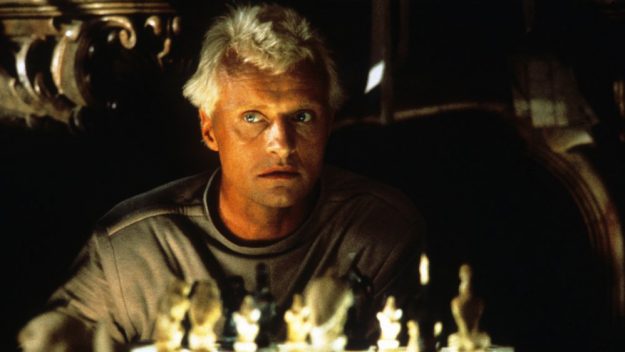
Blade Runner requires no introduction and it usually makes the top of the list. Regarded as one of the best sci-fi films ever made, it is particularly relevant to this genre/subgenre. While officially considered dystopian cyberpunk (with elements of film-noir), BR takes biopunk themes to unprecedentedly nuanced heights, before biopunk was even a thing.
In a dark and gloomy LA of the (now past) future 2019, Deckard (Harrison Ford), a blade runner, must pursue and retire a group of replicants who have rebelled, stealing a spaceship, and returning to Earth to find their maker. Replicants are bioengineered humanoids, created to serve and help humans in large-scale industrial activities, including space exploration and building Off-World colonies.
With biotechnology and synthetic biology allowing for the creation of such organic machines that are indistinguishable from humans, the eternal question is begged yet again: What does it mean to be human?
Is there any difference between free will and a programmed illusion of free will? And who are we without our memories and past experiences?
Set in a world that feels real, tangible, due to the use of physical models and sets, and the extraordinary level of detail, coupled with the romantic, nostalgic, and bittersweet soundtrack by Vangelis, BR is more than just a film. It is an experience that has stayed with many of us throughout the years, and was masterfully continued and expanded upon by BR 2049, 35 years later.
1. Gattaca (Dir. Andrew Niccol, 1997)
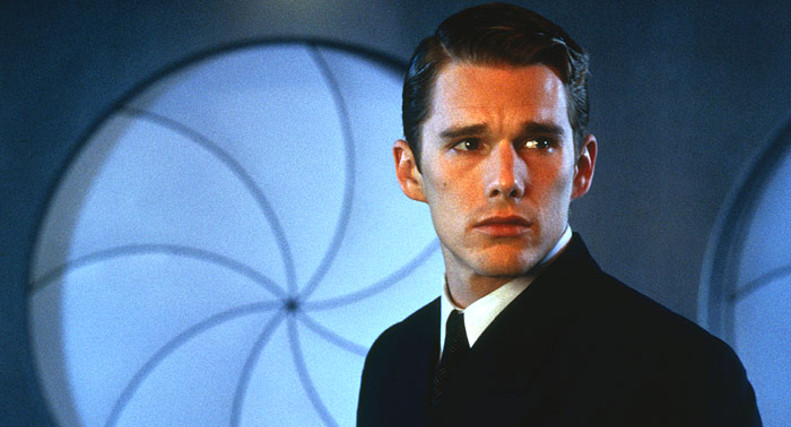
Gattaca takes place in a near-future world where eugenics has become dominant and society has split into valids (genetically engineered humans) and invalids (born through natural conception).
Vincent (Ethan Hawke), a genetically inferior man assumes the identity of Jerome (Jude Law), a genetically perfect athlete left crippled after a suicide attempt, in order to pursue his lifelong dream of space travel.
There are several reasons why Gattaca lands first spot in this list. While most of the other works use biopunk elements for stylistic purposes, as vehicles for metaphors and hyperboles, Gattaca treats the social implications of bioengineering in a very serious manner. Being both emotionally and intellectually complex, it’s closer to an art-house film than your typical sci-fi.
Beyond all that, it is a cerebral, more nuanced and subtle character study drama, enhanced by neo-noir vibes.
Although it flopped at the box office upon its release, obscured by more entertaining films, Gattaca proved to be a film ahead of its time, gaining more popularity as time went by.
With the completion of the Human Genome Project in 2003, and the developments in genetic engineering and gene editing techniques (such as CRISPR) of the past 2 decades, it was only a matter of time until some of the themes and ethical questions explored in the film would transcend art and become palpable dilemmas of modern society.
The BioPunk subgenre is both a narrow and blurry niche, such that it’s rather difficult to come up with a strict definition, positioned at the intersection of various subgenres of Sci-Fi, and overlapping with other genres, such as Horror.
Honorable mentions and other recommendations of BioPunk titles that are worth your time would include: Bride of Frankenstein (1935), Universal Soldier (1992), Code 46 (2003), The Island (2005), Splice (2009), Blade Runner 2049 (2017), Alita: Battle Angel (2019), and series such as Resident Evil, Altered Carbon and Aeon Flux.